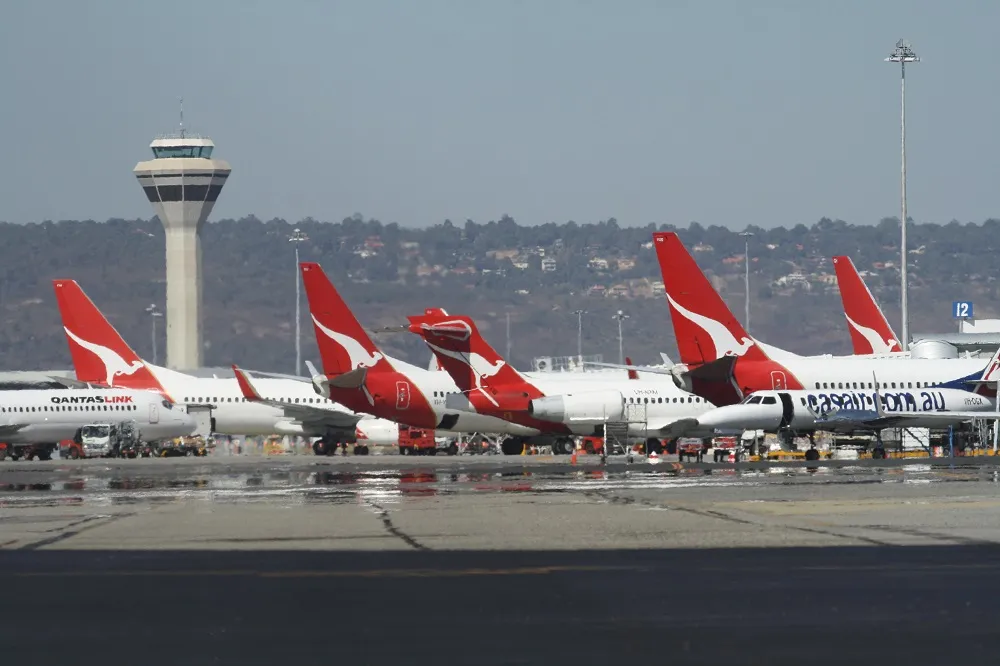
Competition boss warns unregulated airport profits push up fares.
Apr 25, 2018

The head of the competition authority has raised concerns over unregulated profits at airports, indicating that these excessive earnings are contributing to rising airfare prices. He argues that without proper oversight, airport operators are incentivized to prioritize profit over passenger affordability, ultimately leading to higher travel costs for consumers. This warning comes amid ongoing debates about the need for regulatory reforms in the aviation sector to ensure that pricing practices remain fair and competitive. The authority emphasizes the importance of balancing the financial health of airports with the need for accessible air travel for all passengers.
The airline industry has seen a significant surge in demand over the past few years, and with that demand has come a rise in airport profits. However, this increase in profit has raised concerns among competition regulators. A recent warning from the competition authority suggests that unregulated airport profits are contributing to higher airfare prices, ultimately affecting consumers. In this article, we will explore the implications of unregulated airport profits and how they could potentially lead to increased fares for travelers.
The Impact of Unregulated Airport Profits
Airports play a crucial role in the airline industry, acting as the gateway for millions of travelers each year. While it is expected for airports to generate revenue, the competition authority highlights that excessive profits can create a ripple effect throughout the industry. When airports charge airlines higher fees to use their facilities, those costs are typically passed on to consumers in the form of increased ticket prices.
According to recent data, airports in certain regions have reported record profits. This trend raises questions about the sustainability of such earnings and whether they are justified given the current economic climate. The competition authority has pointed out that without proper regulation, there is a risk that airports will continue to prioritize profit over the affordability of travel.
Understanding the Profit Dynamics
To better illustrate the relationship between airport profits and airfare costs, consider the following table that outlines key profit metrics from various airports alongside average airfare prices:
| Airport | 2023 Profit (in millions) | Average Fare (Domestic) | Average Fare (International) |
|---|---|---|---|
| Airport A | $200 | $350 | $800 |
| Airport B | $150 | $400 | $900 |
| Airport C | $300 | $450 | $950 |
This table highlights the correlation between airport profits and airfare pricing. As seen, airports with higher profits tend to have correspondingly higher average fares. This trend suggests that unregulated profit margins can lead to a less competitive market, ultimately harming consumers.
Consequences for Consumers
Higher airfare prices can have far-reaching implications for travelers. For many, increased flight costs can mean the difference between taking a vacation or staying home. Additionally, higher fares can disproportionately affect lower-income individuals, making air travel less accessible. The competition authority's warning serves as a reminder that unchecked profits can create barriers to travel that ultimately limit choices for consumers.
Moreover, the lack of regulation can stifle competition among airlines. When airports charge exorbitant fees, it can discourage new entrants into the market, thereby reducing options for consumers. A less competitive market can lead to higher prices and lower service quality, creating a negative cycle for travelers.
Potential Solutions and Regulatory Measures
Given the concerns raised by the competition authority, it is essential to explore potential regulatory measures that could help mitigate the impact of unregulated airport profits. One approach could involve establishing price caps on the fees that airports can charge airlines. This would create a more level playing field and encourage competition among airlines, ultimately benefiting consumers.
Additionally, increased transparency in airport pricing structures could help consumers understand the factors contributing to airfare increases. By making it clear how much of a ticket price is attributable to airport fees, travelers can make more informed decisions and hold airports accountable for their pricing practices.
The Future of Air Travel
As the airline industry continues to evolve, it is crucial to address the challenges posed by unregulated airport profits. The competition authority's warning serves as a call to action for regulators to prioritize consumer interests in the face of rising airfare prices. By implementing appropriate regulations and fostering a competitive environment, it is possible to ensure that air travel remains accessible and affordable for all.
In conclusion, the relationship between airport profits and airfare prices is complex and multifaceted. As the competition authority has highlighted, unregulated profits can lead to increased fares, negatively impacting consumers. By taking proactive measures to regulate airport pricing and enhance competition, we can work towards a future where air travel is both affordable and accessible.
Related Articles

Explore Thailand: The Best Islands to Visit for Paradise, Adventure, and Relaxation

The Ultimate Guide to the Best Islands in Thailand for Your Next Getaway

Do babies need passports? How to get a passport for a newborn

How to get a U.S. passport fast: here’s how to expedite the process

What is Mobile Passport Control: 5 reasons why you should use it

SENTRI vs. Global Entry: A detailed guide

Do you need a passport to go to the Bahamas? Let’s find out

Do you need a passport to go to Mexico? A detailed guide

Do you need a passport to go to Canada? We got the answer

Do You Need a Passport for a Cruise: An Essential Travel Guide

Booster Seat Requirements: All the Rules to Follow in Your Rental Car

What Are the World’s Most Powerful Passports, and How Does Yours Rank?

How to Take a Passport Photo at Home: A Helpful Guide

You've got to have heart! Southwest's new livery

Your opinion: Should water be free on low cost carriers?

Young women bolder than guys as solo travellers
